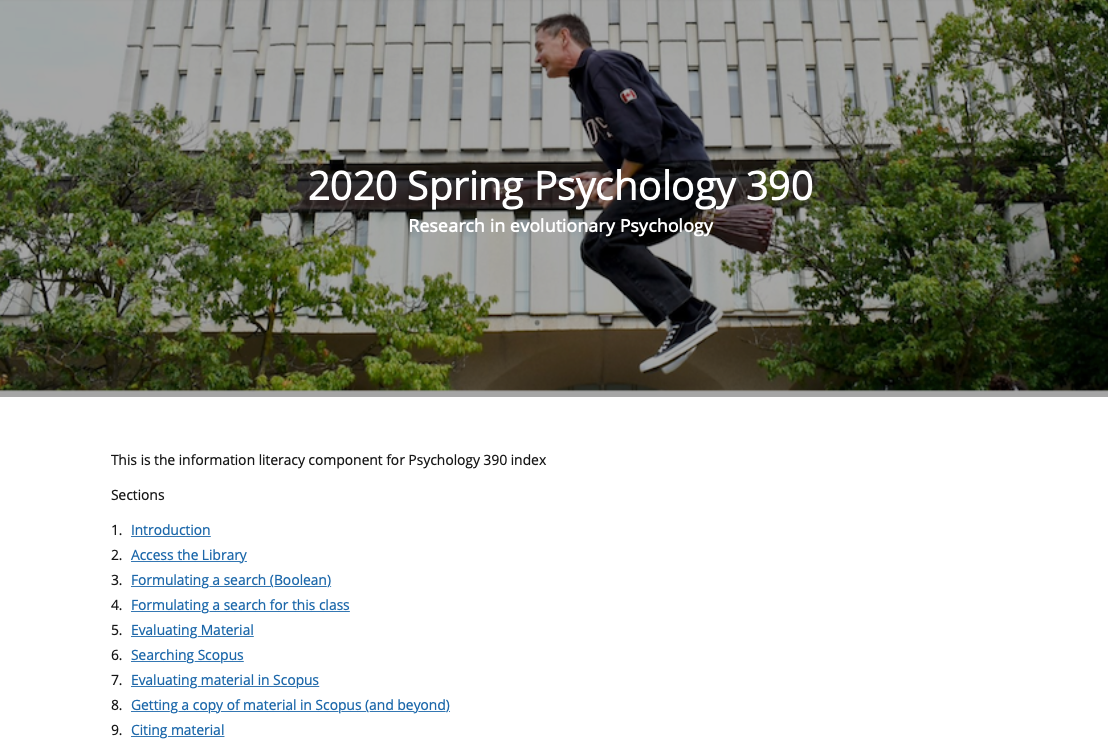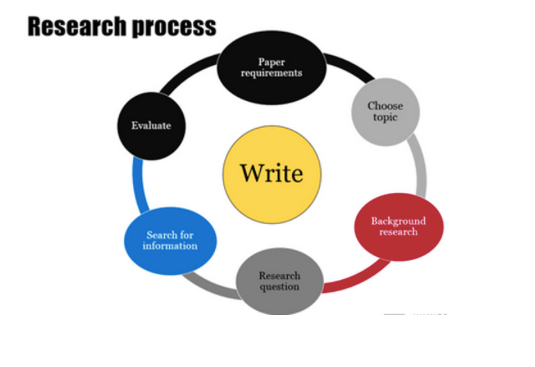General Information
Liaison Librarian: Tim Ireland
Class: PSYCH 390
Assignment Description
Ireland created a resource using PebblePad on Information Literacy – the ability to use libraries and other information resources to locate, evaluate, and use needed information effectively to help with research. Students can navigate the modules in this resource in an organized manner to help them achieve the learning objectives and be successful in their research assignments.

Learning Objectives
- Students should be able to find relevant items
- Students should be able to get relevant material
- Students should be able to evaluate relevant material
- Students should be able to cite material properly & avoid plagiarism
Overview of Information Literacy modules
- Accessing the library Remotely
This module gives an overview of accessing the library remotely, including the research and journal databases.
After completing this section, you should know:
- How to locate the library homepage on the web
- How to gain remote access to licensed university of Waterloo Library resources
- How to find and access the database Scopus
- Formulating a search
This module focuses on helping students understand Boolean search terms and modifiers as well as providing additional information.
After completing this section, you should know:
- How to use different Boolean terms (AND, OR, NOT) to improve the results of your search
- How to use truncation: *
- How to use Wildcard searching
- How to use phrase search: “”
- Formulating a search for this class
This module will help students look at the Research Process, use a research question to brainstorm for keywords, and look at the transformation of keywords into a search string.

- Evaluating material
Students will be able to evaluate information using the CRAAP criteria:
- Currency: When was the information written?
- Relevance: Is this about my topic?
- Authority: Who wrote and published the information?
- Accuracy: Is the information based on legitimate sources?
- Purpose: Why was it written?
- Searching Scopus
Students will learn how to navigate Scopus, a large interdisciplinary database.
After completing this section, you should know:
- How to input search terms to Scopus
- Examine different aspects of the Scopus search results
- Evaluating material in Scopus
This module helps students narrow the search in Scopus to find the best articles related to interests.
After completing this section, you should know:
- How to record your Scopus search results
- How to find additional related information based on your search results
- How to limit the search results to items that are useful for you
- Getting a copy of the material
This module allows students to see the steps on how to obtain full-text articles in Scopus using a link resolver with Get it! @ Waterloo.
After completing this section, you should know:
- How to locate the library link resolver
- How to save or download a PDF
- How to initiate a request to get material from beyond Waterloo
- Citing material
This module offers suggestions for citation materials and software to refer to.
For more information about this activity, please contact Tim Ireland or Katherine Lithgow. Developed by Tim Ireland and shared with permission.